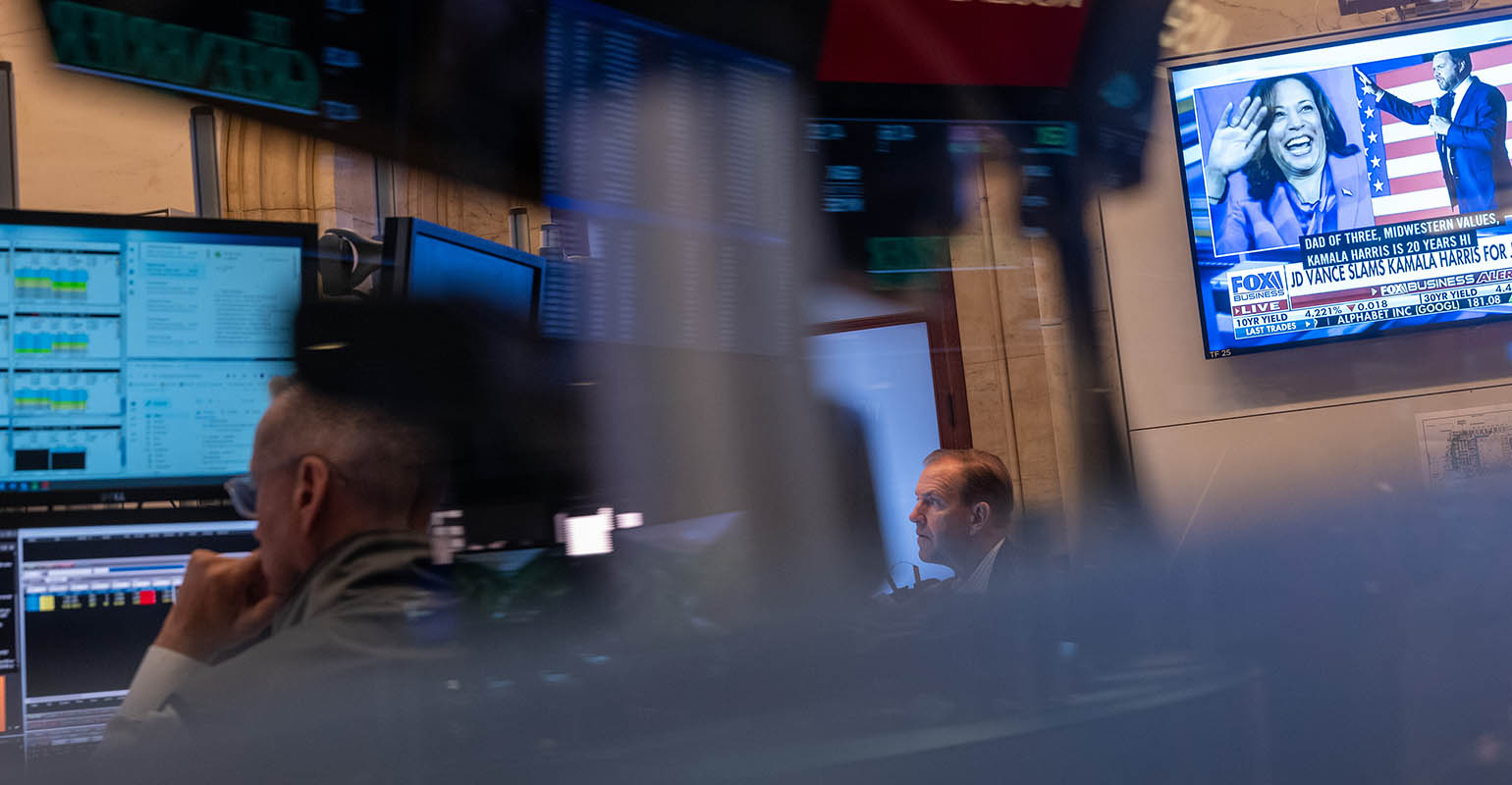(Bloomberg Opinion) – If presidential contenders Kamala Harris and Donald Trump get their way, companies will be taxed at very different rates than they are now. Harris would raise the corporate tax rate to 28% from 21%. Trump would lower that to 15%.
The stock market doesn't care about politics, as I often say, it cares about profits, and tax rates directly affect the bottom line. This impact can be measured, or at least approximated, which is why earnings assumptions based on stock prices may change after the election. The question is how much and what impact it might have on the broader stock market.
To find out, I looked at analyst consensus estimates of pretax and aftertax earnings for companies in the S&P 500 Index for this year and the next four years, the longest period available in data compiled by Bloomberg. Using these numbers, I calculated each company's implied tax rate and the rate for the broader S&P 500, weighting the companies by their market value. And finally, I calculated each company's after-tax earnings assuming a 15% and 28% tax rate to see what the difference would be in each proposal.
The first thing to mention—because I sense many people are wondering to what extent the candidates' tax proposals have already been reflected in stock prices—is that the market doesn't seem to have digested the potential impact of the new tax rates. The tax rate included in the S&P 500 for this year is 20.4%, just below the total corporate tax rate of 21%. It is about the same for each of the next four years.
Here's where it gets interesting: It turns out that Trump's proposed tax cut doesn't move the S&P 500's gains in the first few years, and may even lower them further. That's because analysts already expect the largest companies in the S&P 500 to pay taxes at a rate of roughly 15%, or even lower, over the next two years. This includes Apple Inc. and Nvidia Corp., the two most valued names in the index.
Later in years three and four, however, applying a 15% tax rate would reduce S&P 500 earnings by 5%, this time because many of the largest companies would pay more taxes. For example, analysts assume a 6% tax rate for Microsoft Corp. in fiscal years 2027 and 2028, and a rate closer to 10% for Nvidia and Alphabet Inc. in each of these two years. In total, these three companies account for more than a tenth of the S&P 500's pretax earnings, so raising their taxes would have a big impact on the index's earnings.
The effect of Harris' proposal is more direct: Applying a 28% tax rate to the S&P 500 would reduce the index's gains significantly, by about 15% in the first few years and closer to 20% in the third and fourth years.
Less obvious is the full impact on the market. Lower earnings usually result in a commensurate decline in stock prices. But it doesn't end there because companies that earn less are also less valuable. So a decline in earnings will most likely be accompanied by lower valuations.
One way to estimate how much less is to look at the discount the market is offering for lower profit. The S&P 500 Growth Index, for example, is expected to generate a return on equity of 31% this year at a cost to investors of 32 times future earnings. The S&P 500, on the other hand, is expected to be far less profitable — a return on equity of just 13% — but also at a lower cost of 19 times forward earnings.
In other words, investors can pay 40% less for value stocks if they are willing to accept 60% less profit. With this as a guide, a 5% decline in earnings could be accompanied by a 3% decline in valuations, resulting in a total decline of roughly 8% for the S&P 500. Similarly, a 20% decline in earnings could result in a valuation contraction of around 15%, or a total market decline of close to 35%.
The details of the Harris and Trump tax proposals — chief among them, the breaks and loopholes available to companies — will determine the actual fees companies pay. Those details won't be known until a new administration takes office next year, so any initial market reaction is more likely to be based on the headline tax rates already proposed..
Even so, the market may not react to the election at all, preferring to wait until more details are available. I doubt that's what it will do. But for those wondering how much the market might move in response to the candidates' tax proposals, watch for a modest correction if Trump wins and a deeper correction if Harris prevails.
More from Bloomberg Opinion:
Want more Bloomberg Opinion? Opina
To contact the author of this story:
Nir Kaissar in (email protected)

